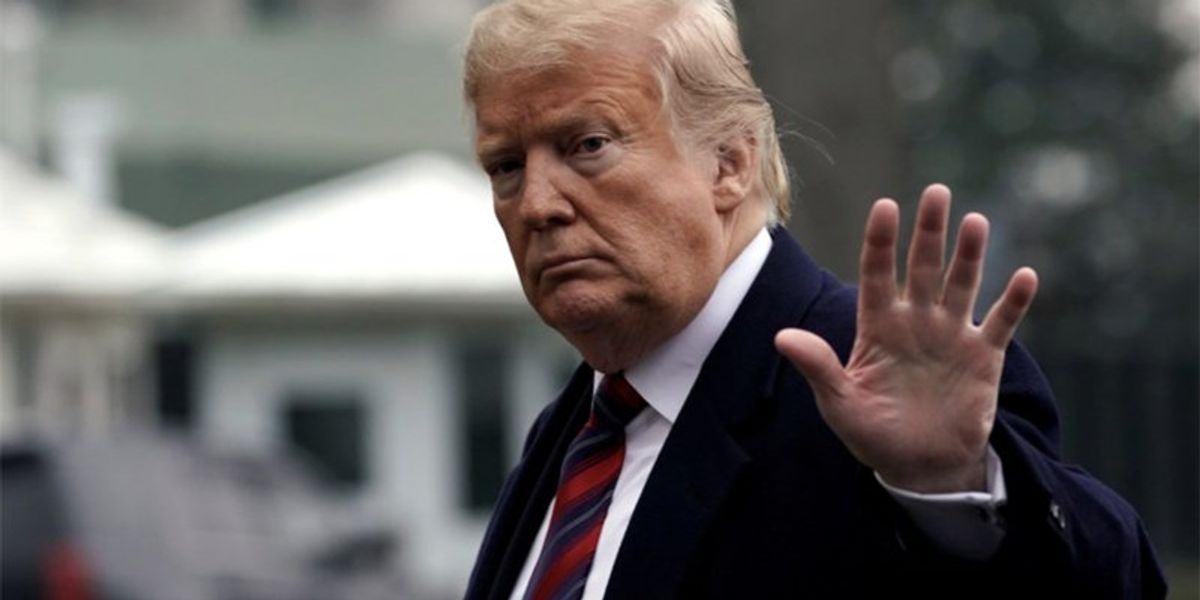Should Donald Trump fail a second time to be re-elected he faces the very real possibility of jail time and massive financial penalties due to the sheer volume of criminal cases and civil lawsuits that are on hold until after the election.
That is the opinion of Syracuse University law professor Greg Germain who explained in an interview with Newsweek that the former president’s only path to get out from under the federal cases he now faces is to beat Vice President Kamala Harris in less than two weeks and then push the Department of Justice to drop the cases filed against him.
As Germain stated, the multiple federal cases Trump is facing are solid and his only path to victory may be having them shut down.
Newsweek source: https://www.newsweek.com/donald-trump-legal-cases-georgia-washington-florida-new-york-stormy-daniels-chutkan-cannon-1974406



Of course there’s “a law for that” - it’s the basic paradigm of democracy.
You feel that it’s unjust, but half the country apparently disagrees with you.
I absolutely understand the feeling - he deserves to be locked up and to become irrelevant, and it would seem to be a convenient escape from this nightmare.
The uncomfortable truth though, is that if a court does anything to diminish Trump, he will become a martyr.
The voting public needs to decide they want him held accountable.
The half the country that disagrees isn’t disagreeing with the laws Trump broke and voting to repeal them. If they were, your argument would have standing. Trump wins, those laws get repealed, no one ever has to be subject to these unjust laws. In a scenario where someone was campaigning to legalize pot nationally but was in court for possession you would be 100% correct.
However, this half the country wants those laws to continue to apply to everyone else, but not to apply to Trump, one of the most corrupt, self serving people ever to hold office. The whole country agrees that those laws should exist (fraud, sexual assault, corruption, election interference, insurrection). Half the country thinks Trump should just be above the law, and you can’t have democracy when the law treats people differently.
Your argument sounds logical on the surface, but it’s deeply flawed to the point where it’s almost suspicious in its dishonestly.
What is suspicious or dishonest about my argument? What are your suspicions?
You’re correct that the voting public wants all those laws, but just doesn’t want them to apply to Trump.
The point of my illustration layout out the manner in which the voting public controls the courts, is merely to show that the court must be subservient to the will of the voting public.
Not hearing the cases against Trump is problematic, but it’s less so than a situation where cases against candidates are allowed to undermine elections.
The “voting public” deciding a candidate is above the law isn’t democratic.
The courts are not a democratic institution, they’re there to apply the laws passed by a democratically elected government in a fair and impartial manner.
Sure the laws should be subject to the will of the people, but the application of the law should not. That’s nonsense.
Saying it’s dangerous to apply a law everyone agrees with to a politician who committed crimes is absurd.
Thanks for the response, now I KNOW you’re just a Trumptard playing “Devils advocate”.
Sorry chief, you’ve misunderstood my argument. I’m not going to repeat myself ad nauseam so you’re welcome to keep thinking that I’m a Trumptard and that I (along with every judge in the US) am mistaken about the role of courts in democracy and more specifically in elections.